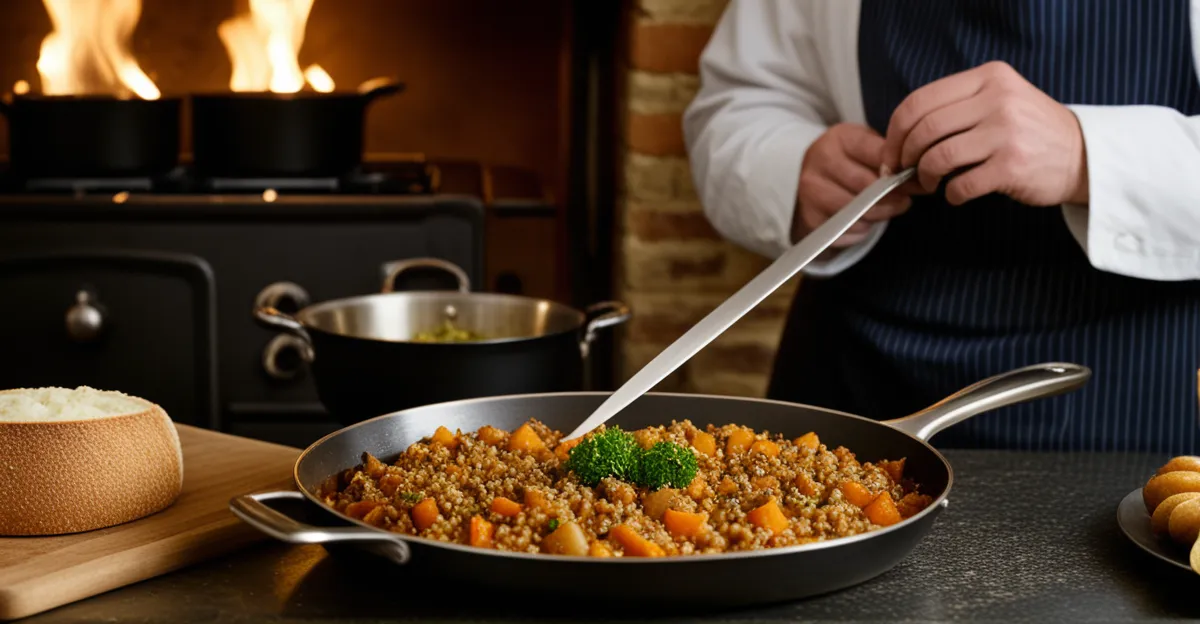Key Benefits of Traditional British Recipes in Contemporary Kitchens
Traditional British cooking offers many benefits that remain relevant in modern kitchens. One major advantage is the nutritional value of whole ingredients commonly used in classic British dishes. These recipes often incorporate fresh, unprocessed components such as root vegetables, whole grains, and quality proteins, supporting balanced and wholesome meals.
Another important benefit is the focus on local and seasonal produce. Traditional recipes naturally encourage utilising ingredients at their peak freshness, which enhances flavour and reduces the environmental impact of food miles. This practice also helps modern cooks connect with regional food traditions and support local farmers, tying into sustainability.
Additional reading : How can you create a traditional shepherd’s pie with a modern twist?
Finally, traditional British recipes provide a unique sense of comfort and connection. Time-honoured meals evoke nostalgia and familial bonds, making them perfect for modern households seeking both emotional and physical nourishment. The familiarity of these dishes reassures many cooks, encouraging experimentation within a trusted culinary framework.
Incorporating traditional British cooking into contemporary kitchens not only preserves heritage but also brings practical benefits—from nutrition to sustainability—ensuring these recipes continue to thrive today.
Also to read : How Can UK Cuisine Evolve While Honoring Its Traditions?
How Traditional British Recipes Support a Healthier Lifestyle
Traditional British recipes offer notable health benefits by prioritising minimally processed foods, which retain more nutrients than highly refined alternatives. Classic dishes often showcase wholesome British meals composed of vegetables, quality proteins, and whole grains, creating balanced plates that align well with contemporary nutritional guidelines.
What makes the health benefits of British recipes stand out is the reduced reliance on artificial additives and preservatives common in many modern ultra-processed foods. Instead, these recipes lean on natural flavours and simple cooking techniques. For instance, slow-cooked stews and roasted meats alongside root vegetables provide essential vitamins and minerals while avoiding excess sugars and unhealthy fats.
Moreover, traditional food nutrition is inherently connected to portion control and the use of fresh, whole ingredients, enabling easier digestion and improved satiety. These meals encourage consuming a diverse range of food groups in moderate amounts, supporting long-term wellbeing.
In summary, traditional British cooking forms an excellent foundation for healthy eating. Its emphasis on natural, balanced components caters to those seeking nourishing meals without sacrificing flavour or tradition. This strengthens the position of British culinary heritage as a valuable resource in today’s health-conscious kitchens.
Simplicity and Accessibility in Everyday Cooking
Traditional British cooking excels in easy British recipes that fit seamlessly into modern life. These recipes rely on simple traditional meals with straightforward methods, often requiring only basic kitchen tools. This simplicity ensures that even novice cooks can prepare wholesome meals without feeling overwhelmed.
A key advantage lies in the adaptability of ingredients. Traditional British recipes often feature flexible components, allowing for adjustments to suit dietary preferences or modern nutritional needs. For example, a classic shepherd’s pie can incorporate plant-based proteins to create an accessible home cooking option for vegetarians, demonstrating how these easy British recipes accommodate evolving diets while preserving traditional flavour profiles.
Time-saving strategies also enhance accessibility. Many traditional dishes, such as stews or casseroles, benefit from hands-off cooking methods like slow simmering, freeing up time for other activities. This quality makes simple traditional meals practical for busy households, reducing meal preparation stress without sacrificing taste or nutrition.
In sum, the benefits of traditional British recipes in everyday cooking lie in their accessibility, adaptability, and efficiency—qualities that make home cooking enjoyable and sustainable for a wide range of people.







